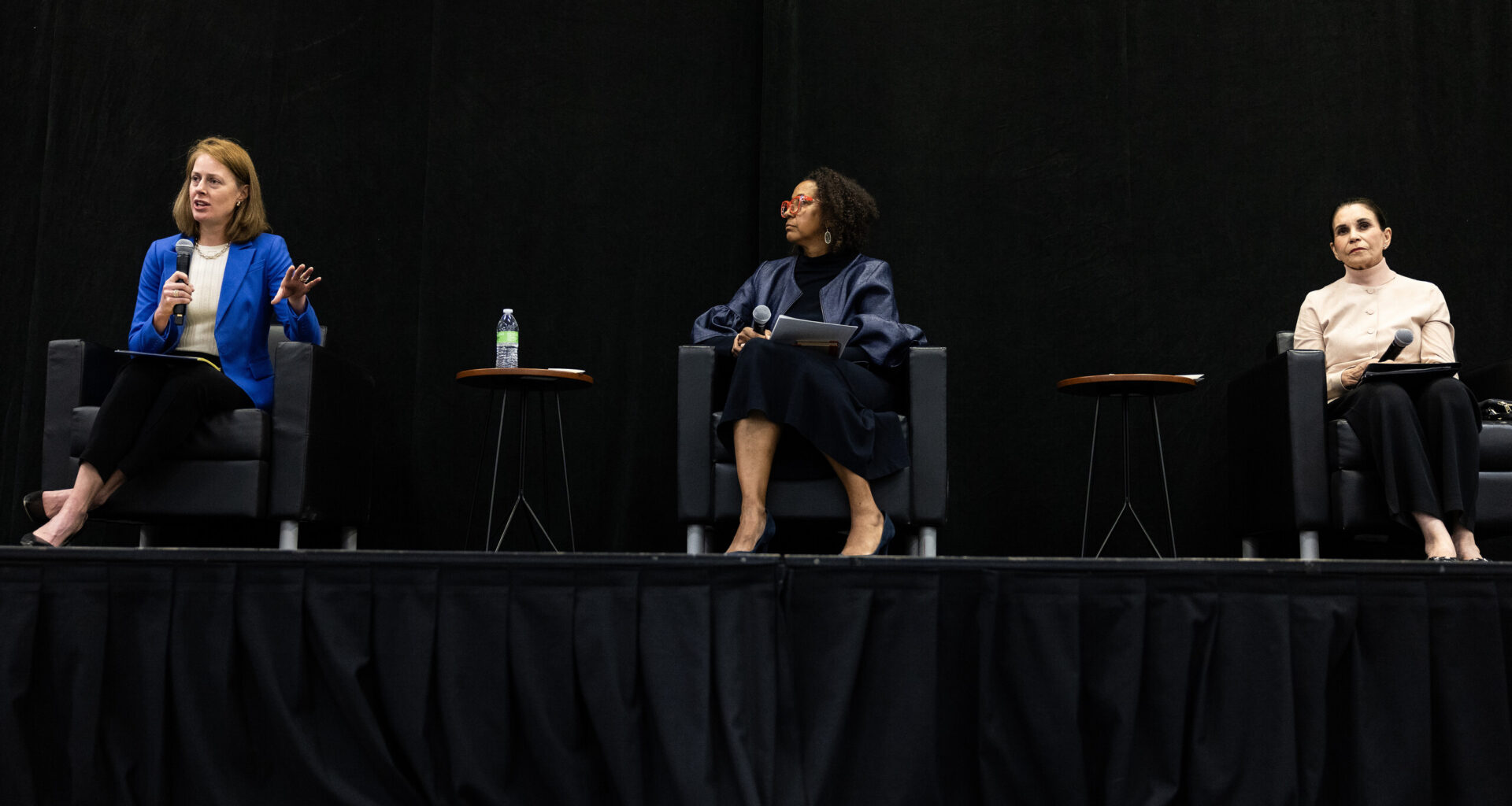Ten years ago, Texas Gov. Greg Abbott set an ambitious goal — for 60% of the state’s young adults to have a postsecondary credential by 2030.
With only a few years to go and amid a state takeover of Fort Worth schools, there is still a long way to go to meet the growing workforce needs of the city.
They came together Thursday to discuss progress and challenges in building that talent pipeline and ensuring today’s students can earn livable wages during the Fort Worth Report’s 1 Million & Counting Growth Summit and Luncheon.
College attainment has a strong impact on students’ earning potential, but they must be set up for success early, said Elizabeth Brands, president and CEO of the Morris Foundation, which invests in nonprofits focused on improving education, health care and social services.
“About half of students in Fort Worth will begin their postsecondary experience in a two-year college,” she said. “That’s really significant because students who attend and graduate with some sort of associate degree or bachelor’s degree, they will earn annually $32,000 more per year than their peers who only have a high school degree.”
But of third graders who are behind in math, only 1 in 10 will have grade-level skills in sixth grade, Brands said. Only 1 in 5 third graders who are behind in reading will be caught up in sixth. This makes it more difficult for them to eventually earn a degree, she said.
By eighth grade, students and parents are making choices that impact what the high school years will look like, such as making course selections or deciding to enroll in career education programs, said Natalie Young-Williams, president and CEO of the Tarrant To & Through Partnership, or T3. The partnership works to help students earn a postsecondary credential.
“The hard part is how you start in middle school talking to students about who they are — who they think they’re going to be in 10 years — when right now, they’re just trying to get through … middle school,” she said.
Confidence is crucial for students’ ability to see college and careers as a reality, Tarrant County College Chancellor Elva LeBlanc said.
“The students are intelligent,” she said. “They’re really smart, but they don’t always have confidence and motivation to do what they need to do.”
Stackable credentials are one way to build confidence, she said. Students can enroll in courses that can lead to an industry certification or associate degree that allows them to work in their desired field. A worker then can build on that to eventually earn a bachelor’s degree.
When LeBlanc was teaching, she met hesitant students and encouraged them to progress from noncredit courses to credit courses to eventually earn a degree, she recalled.
“You start at base one, and you can build on that,” she said. “In many cases, they can start working entry level jobs, and then they go from there.”
Amid the takeover news, it is important to support the public schools that educate the vast majority of children in Tarrant County, Brands said.
“We can ask questions of our public education system and make sure they are holding students to high accountability and holding them accountable for that,” she said. “But at the same time, we need to remember to be champions of our public education system.”
McKinnon Rice is the higher education reporter for the Fort Worth Report. Contact her at mckinnon.rice@fortworthreport.org.
The Fort Worth Report partners with Open Campus on higher education coverage.
At the Fort Worth Report, news decisions are made independently of our board members and financial supporters. Read more about our editorial independence policy here.
Related
Fort Worth Report is certified by the Journalism Trust Initiative for adhering to standards for ethical journalism.
Republish This Story
Republishing is free for noncommercial entities. Commercial entities are prohibited without a licensing agreement. Contact us for details.

